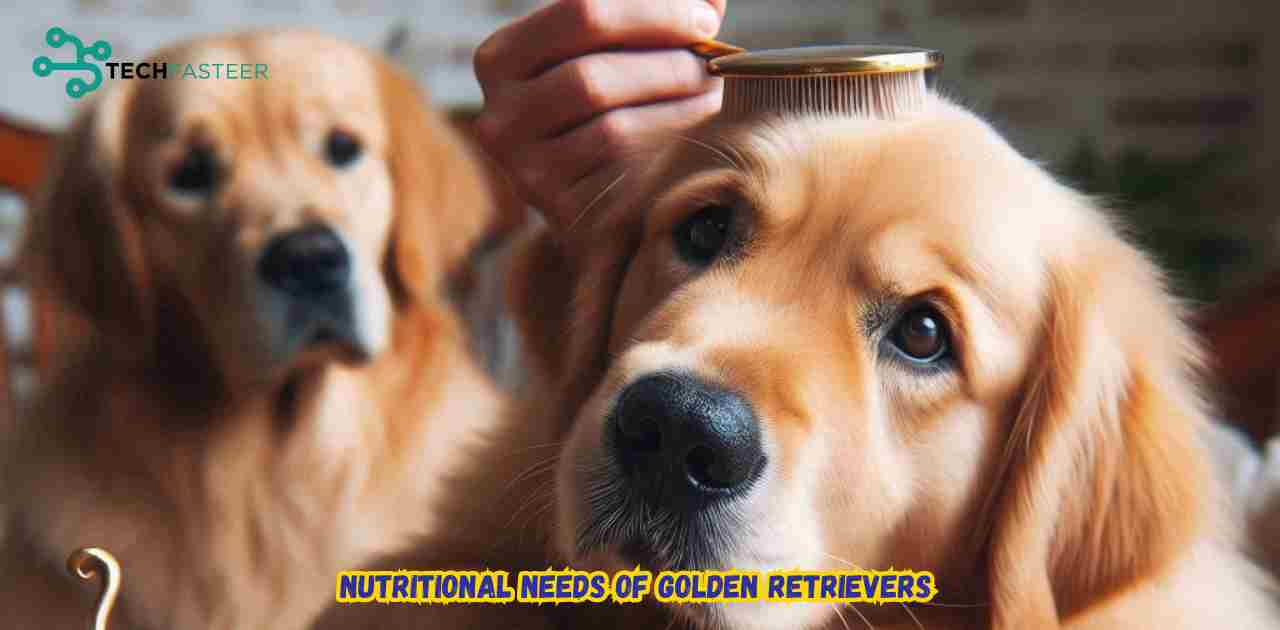Golden Retrievers are one of the most beloved dog breeds around the world. Renowned for their friendly temperament and intelligence, these dogs make excellent companions for families, singles, and seniors alike. In this comprehensive guide, we’ll delve into the origins and history of Golden Retrievers, explore their physical characteristics, discuss health considerations, and cover the nutritional needs of these charming dogs.
Origins and History
The Beginnings of the Golden Retriever
Golden Retrievers have a storied history that dates back to the mid-19th century in Scotland. The breed was developed by crossing the now-extinct Yellow Retriever with the Tweed Water Spaniel, another breed no longer in existence. This crossbreeding aimed to produce a dog with an excellent nose for tracking and a gentle mouth for retrieving game undamaged.
Key Milestones in Golden Retriever History:
- 1868: The first known Golden Retriever litter was born.
- 1903: The breed was officially recognized by The Kennel Club in the UK.
- 1925: The American Kennel Club (AKC) recognized the Golden Retriever as a distinct breed.
Golden Retrievers were initially bred to be gun dogs that could retrieve shot game during hunting and shooting parties. Their intelligence, eagerness to please, and strong swimming abilities made them ideal for this role. Over time, their friendly and tolerant attitudes won them a place as beloved family pets and working dogs in various capacities, including search and rescue, therapy, and assistance work.
Golden Retrievers in Modern Times
Today, Golden Retrievers continue to excel in various roles due to their versatility. They are commonly seen as guide dogs for the blind, hearing dogs for the deaf, and service dogs for individuals with disabilities. Their keen sense of smell and trainability also make them valuable in search and rescue operations and as detection dogs for law enforcement.
Physical Characteristics of Golden Retrievers
Golden Retrievers are known for their distinctive appearance, which combines elegance with strength. Let’s break down their physical characteristics to understand what makes this breed so unique.
Red Also:Discover drawing:a4z_-ymtkr8= cat
Size and Weight
Golden Retrievers are medium to large-sized dogs. Males typically stand between 23 to 24 inches tall at the shoulder and weigh between 65 to 75 pounds. Females are slightly smaller, standing 21.5 to 22.5 inches tall and weighing 55 to 65 pounds.
| Gender | Height | Weight |
| Male | 23 – 24 inches | 65 – 75 pounds |
| Female | 21.5 – 22.5 inches | 55 – 65 pounds |
Coat and Colour
One of the most striking features of the Golden Retriever is its dense, water-repellent coat. The outer coat is straight or wavy, while the undercoat is soft and provides insulation against cold weather. The breed’s coat comes in various shades of gold, ranging from light cream to dark golden.
Other Physical Traits
- Head: Broad and well-chiselled with a distinct stop and a strong, straight muzzle.
- Eyes: Medium to large, dark brown with a friendly and intelligent expression.
- Ears: Medium-sized, set high, and fall close to the cheeks.
- Tail: Thick and muscular at the base, carried with a merry action.
These characteristics contribute to the Golden Retriever’s reputation as a beautiful and functional breed, capable of working in various environments and conditions.
Health Considerations
Golden Retrievers are generally healthy dogs, but like all breeds, they are prone to specific health issues. Awareness and early detection are crucial to ensure they live long, healthy lives.
Common Health Issues
- Hip Dysplasia: A genetic condition where the hip joint doesn’t fit into the hip socket properly. This can lead to arthritis and pain.
- Elbow Dysplasia: Another genetic condition affecting the elbow joints, leading to arthritis.
- Heart Problems: Such as subvalvular aortic stenosis (SAS), a condition that restricts blood flow from the heart.
- Eye Conditions: Including cataracts and progressive retinal atrophy (PRA), which can lead to blindness.
- Cancer: Golden Retrievers have a higher incidence of cancer compared to many other breeds. Common types include hemangiosarcoma and lymphosarcoma.
Preventive Measures
To ensure your Golden Retriever remains healthy, consider the following preventive measures:
- Regular Vet Check-Ups: Routine visits to the vet can help detect and treat issues early.
- Hip and Elbow Screening: Ensure breeders have screened their dogs for hip and elbow dysplasia.
- Heart and Eye Examinations: Regular screenings can help catch problems before they become serious.
- Healthy Diet and Exercise: A balanced diet and regular exercise can help maintain a healthy weight and overall well-being.
- Vaccinations and Parasite Control: Keep vaccinations up to date and regularly check for fleas, ticks, and other parasites.
Nutritional Needs of Golden Retrievers

Diet and Nutrition
Golden Retrievers require a balanced diet to maintain their health, energy levels, and shiny coats. Their diet should include high-quality proteins, healthy fats, and a mix of vitamins and minerals.
Key Nutritional Components:
- Protein: Essential for muscle development and repair. Good sources include chicken, beef, fish, and lamb.
- Fats: Provide energy and support skin and coat health. Look for foods with omega-3 and omega-6 fatty acids.
- Carbohydrates: Provide energy and help with digestion. Include whole grains like brown rice and oats.
- Vitamins and Minerals: Support overall health. Ensure the diet includes vitamins A, D, E, and minerals like calcium and phosphorus.
Feeding Guidelines
Feeding your Golden Retriever the right amount is crucial to avoid obesity, which can exacerbate other health problems like hip dysplasia. The amount of food your dog needs will depend on their age, size, activity level, and metabolism.
General Feeding Guidelines:
- Puppies: Need more frequent meals (3-4 times a day) to support their growth and energy needs.
- Adults: Typically require two meals a day.
- Seniors: May need fewer calories and more fibre to support their digestive health.
Always consult with your vet to tailor the diet to your Golden Retriever’s specific needs. Fresh water should always be available to keep them hydrated.
Grooming and Care
Golden Retrievers are known for their beautiful, dense coats, which require regular grooming to keep them healthy and manageable. Proper grooming not only keeps your dog looking good but also helps prevent skin problems and shedding around your home.
Coat Care
Golden Retrievers have a double coat, which means they have a soft undercoat and a water-resistant outer coat. This type of coat requires regular maintenance.
Grooming Tips:
- Brushing: Brush your Golden Retriever at least once a week. During shedding seasons in spring and fall, you might need to brush more frequently to remove loose hair and prevent matting.
- Bathing: Bathe your dog every six to eight weeks, or as needed. Over-bathing can strip the coat of natural oils, so it’s important to strike a balance.
- Trimming: Trim the fur around the ears, paws, and tail to keep it neat and free of tangles. You can also trim the nails regularly to prevent overgrowth, which can cause discomfort and walking issues.
Dental Care
Good dental hygiene is crucial for your Golden Retriever’s overall health. Dental disease can lead to serious health issues, so regular care is essential.
Dental Care Tips:
- Brushing: Brush your dog’s teeth at least two to three times a week using a dog-specific toothbrush and toothpaste.
- Chew Toys: Provide dental chew toys to help reduce plaque and tartar buildup.
- Professional Cleanings: Schedule professional dental cleanings with your vet as recommended.
Ear and Eye Care
Golden Retrievers are prone to ear infections due to their floppy ears, which can trap moisture and dirt. Regular ear care helps prevent these issues.
Ear Care Tips:
- Cleaning: Check and clean your dog’s ears weekly using a vet-recommended ear cleaner. Avoid inserting anything deep into the ear canal.
- Drying: Ensure ears are dry after swimming or bathing to prevent infections.
Eye Care
Regular eye check-ups and cleaning help prevent infections and other eye-related issues.
Eye Care Tips:
- Cleaning: Wipe around your dog’s eyes with a damp cloth to remove any discharge.
- Check-Ups: Regular vet visits can help catch and treat eye issues early.
Read Also:EXPLORING ANIME: DOQJ3FXNEVS= CAT
Training and Socialisation for Golden Retrievers
Golden Retrievers are intelligent and eager to please, making them relatively easy to train. Early training and socialisation are key to raising a well-behaved and happy dog.
Basic Training
Start training your Golden Retriever as early as possible, focusing on basic commands and house training.
Key Commands:
- Sit: Teach your dog to sit on command. This is one of the most basic and useful commands.
- Stay: A crucial command for controlling your dog in various situations.
- Come: Ensures your dog returns to you when called, important for safety.
- Heel: Teaches your dog to walk beside you on a loose leash, making walks more enjoyable.
Socialisation
Proper socialisation helps your Golden Retriever become a well-adjusted adult dog. Expose your puppy to various people, environments, and other animals from a young age.
Socialisation Tips:
- Puppy Classes: Enrol in puppy socialisation classes to expose your dog to other puppies and people in a controlled environment.
- Walks: Take your dog on walks in different areas to introduce them to new sights, sounds, and smells.
- Playdates: Arrange playdates with other dogs to encourage positive interactions.
Advanced Training
Once your Golden Retriever has mastered basic commands, you can move on to more advanced training, including agility, obedience trials, and even therapy dog training.
Advanced Training Tips:
- Consistency: Be consistent with commands and rewards to reinforce good behaviour.
- Positive Reinforcement: Use treats, praise, and play to reward your dog for good behaviour.
- Patience: Training takes time and patience. Keep sessions short and fun to maintain your dog’s interest.
Role as Pets
Golden Retrievers are renowned for their gentle, friendly nature, making them excellent family pets. Their adaptability and eagerness to please ensure they fit well into various households.
Family Companions
Golden Retrievers are great with children and other pets, making them ideal family dogs. Their playful and tolerant nature allows them to bond quickly with family members.
Family Life Tips:
- Supervision: Always supervise interactions between young children and your dog to ensure safety for both.
- Involvement: Involve all family members in training and care to strengthen the bond with your dog.
- Activities: Engage in family activities that include your dog, such as hiking, swimming, or playing fetch in the park.
Working Roles
Beyond being beloved pets, Golden Retrievers excel in various working roles due to their intelligence and trainability.
Common Working Roles:
- Service Dogs: Assist individuals with disabilities by performing tasks such as retrieving items and providing mobility support.
- Therapy Dogs: Visit hospitals, nursing homes, and schools to provide comfort and support to those in need.
- Search and Rescue: Use their keen sense of smell to locate missing persons in various environments.
Companionship for Singles and Seniors
Golden Retrievers also make excellent companions for singles and seniors, offering loyalty, love, and a sense of security.
Companion Tips:
- Daily Exercise: Ensure your dog gets regular exercise to maintain their physical and mental health.
- Social Interaction: Engage in social activities that include your dog, such as visiting dog parks or attending training classes.
- Routine Care: Keep up with regular grooming, vet visits, and a healthy diet to ensure your dog stays happy and healthy.
Conclusion
Golden Retrievers are truly versatile dogs, excelling as family pets, working dogs, and loyal companions. Their friendly nature, intelligence, and adaptability make them one of the most popular breeds worldwide. By understanding their origins, physical characteristics, health needs, grooming requirements, and training, you can ensure a happy and fulfilling life for your Golden Retriever.
Frequently Asked Questions (FAQs) about Golden Retrievers
What are Golden Retrievers like as pets?
Golden Retrievers are known for their friendly, tolerant attitudes, making them excellent family pets. They are intelligent, trainable, and great with children and other animals.
How big do Golden Retriever puppies get?
Golden Retriever puppies grow quickly. Males typically reach 65-75 pounds, while females weigh between 55-65 pounds. Full height is usually achieved by one year of age.
What kind of exercise do Golden Retriever puppies need?
Golden Retriever puppies need regular exercise to stay healthy and happy. Daily walks, playtime, and mental stimulation are essential. Ensure they get at least one hour of exercise per day.
Are Golden Retrievers easy to train?
Yes, Golden Retrievers are highly trainable due to their intelligence and eagerness to please. Consistent, positive reinforcement methods work best for this breed.
What should I feed my Golden Retriever puppy?
Feed your Golden Retriever puppy a high-quality, balanced diet rich in proteins, fats, and essential vitamins and minerals. Consult your vet for specific dietary recommendations based on your puppy’s needs.

Biography
Richard Ford is a technologist with 10 years of experience in the Tech industry. He was born in Springfield, Illinois on March 12, 1983. Richard pursued a Bachelor’s degree in Computer Science from the University of Illinois. he specializes in AI development and cybersecurity.
He currently works at Techfasteer and Facebook. Richard’s passion for technology began at a young age as a junior software developer at a small startup. He then joined Techfasteer, where his work on AI algorithms gained widespread recognition. His expertise in cybersecurity was further honed at Facebook, where he played a crucial role in enhancing the platform’s security infrastructure.
Throughout his career, Richard has been awarded multiple industry accolades for his contributions to technology.
Published Works:
Fintechzoom Meta Stock Analysis
Teltlk – Innovating Communication
Richard Ford’s impact on the technology sector is profound, marked by his dedication to AI development and cybersecurity. His personal philosophy makes him a respected figure in his field. Richard’s legacy is one of passion, perseverance, and significant contributions to the tech industry.











